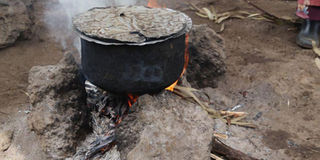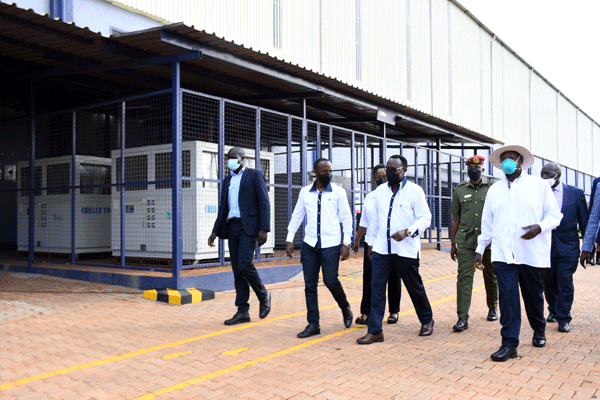Prime
Govt seeks to push up usage of electricity for cooking

Majority of Ugandans use wood fuel for cooking, which is not only harzadous to their health but has been a factor in the depletion of the country’s forest cover. PHOTO | file
What you need to know:
It is estimated that nine out of 10 households in Uganda use either firewood or charcoal for cooking, which has created problems for Uganda’s forest cover.
Government will, through regular adjustment of tariffs, seek to woo Ugandans towards using electricity for cooking, according to Electricity Regulatory Authority (ERA).
The campaign, which will include continuous reduction of specifically household electricity tariffs will be achieved through the Declining Block Tariff for Domestic Consumers also code-named Cooking Tariff announced in Kampala yesterday.
Speaking at the announcement of a new tariff plan for the 2022 first quarter for different consumer categories in Kampala yesterday, Ms Sarah Kanabi, the ERA chairperson, said the introduction of a Declining Block Tariff for Domestic Consumers campaign codenamed the Cooking Tariff seeks to create ways through which Ugandans would be encouraged to cook using electricity.
The campaign, Ms Kanabi said, will be supported with the launch of a preferential tariff that would require institutional users such as the Mwana Mugimu Mulago National Referral Hospital cooking pilot project, which had already been enrolled, to pay Shs451.4 per kilowatt per hour.
Majority of Ugandans use wood fuel or charcoal to cook due to high electricity tariffs and unaffordable alternatives.
Government, has since last year sought to create alternatives to wood fuel. However, they remain inaccessible to a number of Ugandans.
For instance, liquefied petroleum gas, which would be one of the best alternative for urban Ugandans, remains out of reach to many users even after government scrapped value added tax on the product during the 2020/21 financial year.
Ms Kanabi also noted that government would continuously reduce industrial tariffs in a bid to promote productive use of electricity in industrial parks as well as re-categorising beneficiaries of the lifeline (social) tariff.
“The amendments [reductions] have been made to cater for the current and future needs of the electricity supply industry to reduce the cost of electricity,” she said.
However, yesterday, ERA indicated that it had slightly lowered tariffs for domestic electricity consumers for the period ending March 2022.
Consumers, ERA noted, would pay Shs745.7 from Shs747.5 per kilo watt hour for electricity above 15 units while lifeline units or the first 15 units used within a particular period would cost Shs250, the same amount as for the period ending December. Tariffs for other consumer categories were either maintained or reduced.
For instance, commercial consumers, will during the period pay Shs597.1, which is slightly lower than the Shs606.1 that they have been paying for the quarter ending December.
Medium industries will pay Shs472 from Shs500.6, while large industries will pay Shs355, the same amount as the previous quarter.
Tariffs for extra larger industrial consumers and street lighting have been maintained at Shs300.2 and Shs370.
ERA has since 2014 reviewed tariffs on a quarterly basis, putting in consideration changes in inflation, exchange rate and international fuel prices.
Ms Kanabi also noted that government expects electricity demand to grow at an annual rate of 11.6 percent in 2022.




